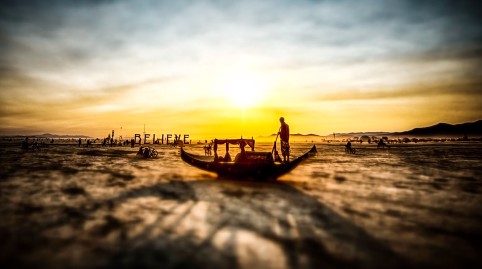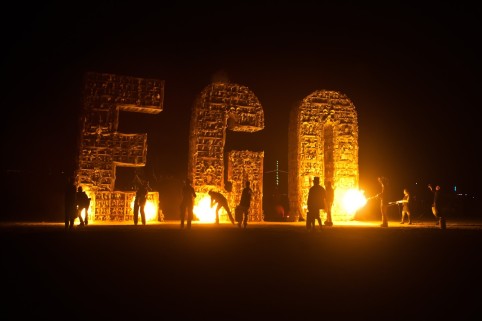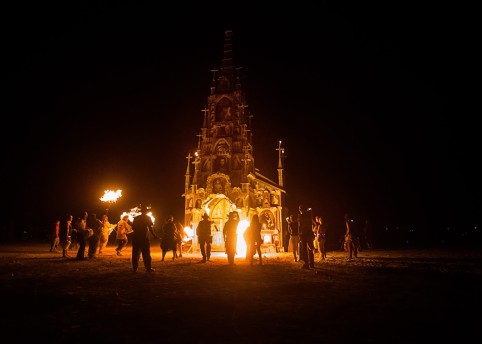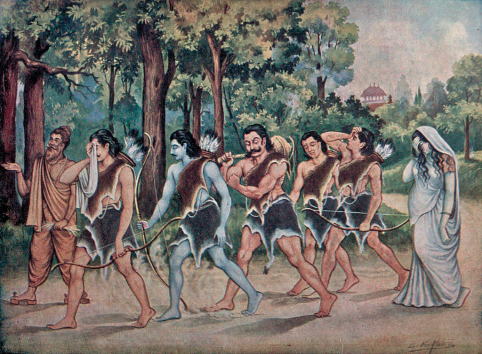[This post is part of the 10 Principles blog series, an ongoing exploration of the history, philosophy and dynamics of Burning Man’s 10 Principles in Black Rock City and around the world. We welcome your voice in the conversation.]

There have been some recent losses in our community — suicides and accidents — that serve as stark reminders of the impermanence of it all. My heart goes to the friends and family impacted by these losses. For those of us connected through social networks, both personal and online, we are entering new territory. No generation has shared and mediated grief through digital space like we do, and no generation has been so removed from religion. In the spirit of continuing the exploration of how we talk about impermanence in a radical, creative culture, I’d like to share the following reflections.
Read the entire original post and supplements here…
The best conversation I had in 2013 was about death. I was being interviewed to be a volunteer at the Zen Hospice Project (ZHP) and, in my 1.5 hour long interview, the Volunteer Director, Roy Remer, now a collaborator of mine, asked me all sorts of questions about death and dying: “Had I ever seen a dead body?” “What was my experience with death?” “Why did I want to work with people in their last days of life?” “What was my work and how did my work life connect to this hospice work?”
I work for Burning Man. I don’t often have conversations about death and the role of death in my work life. Mostly, I think of the event as a celebration of life; a feeling of connection to Immediacy but not necessarily a connection to “THE END.” And I think that is, in part, why I wanted to volunteer for ZHP.
I was looking for something that would ground me and connect me to something bigger. I don’t belong to a church and I never have, but I do believe in Karma Yoga (or Gifting); I do believe in service. And I have always believed that our final days of life are an incredible, potent, important time. I have often wondered who would be there at my bedside when my time comes. And when I signed up to volunteer, there was something romantic in me about what I might be able to do for someone in their final days. It’s hard to be romantic about death but I thought perhaps I could be there for someone else in his or her last days. Maybe I could provide a kind face for them; give a heartfelt hand squeeze; maybe I could help someone in their last days feel a little more love.
There is an ancient yoga story from the Mahabharata about the five Pandava brothers. They all get lost in this forest and as they approach this lake, they get overwhelmed with an incredible thirst, but a voice comes from the lake and says, “Don’t drink me.” But they are all really thirsty and so they all follow their desires — they all drink from the lake and so they all die. Except for one brother, Yudhisthira, who talks to the voice from the lake and it turns out it’s a spirit. Testing Yudhisthira, the spirit from the lake asks him these questions:
“What is the most remarkable or strange thing about human life?”
Yudhisthira says, “That everyday people die, yet humanity goes on thinking they are going to live forever.”
It’s true: we have a hard time imagining we are going to die. Who wants to think about death? Death seems sort of scary and sort of impossible when you’re alive.
The spirit of the lake asks a second question:
“What is the greatest gift, or what is the only friend, a dying man has at his bedside?”
And Yudhisthira says,
“The charity that the man has done throughout his life will be his companion.”
That struck me, this idea that whatever good we do throughout our lives, and hopefully we are doing some good here and there, it comes back to us in the end. So when we are dying, the love we have given can be felt internally or seen and received in the loved ones around us.

So with ambitions of some sort of a spiritual redemption, I went into this Zen Hospice Volunteer interview. And Roy asked me about Burning Man. I told him that in a way, we (the Burning Man community) deal with impermanence all the time. We build a temporary city out of the dust; in two months it is created, celebrated, disassembled and returned back to the dust. There is always a great high and excitement at the birth of the event and there is always a sense of despair and desolation following. It feels like a loss and a death, every year. And some years are harder than others.
We celebrate Immediacy because we know that the spectacle can’t last. The Burning Man community pours tons of energy and attention into art and an experience that will exist for one week. We pay close attention to the art of the social interaction and performance; the art of the fire; the art of the dance; these moments are so fleeting and unreplicable. And of course there’s The Man: the man — the physical body of a man — that is built and then burnt. Every year. Although there is no “defined” meaning to this ritual, for many participants, The Man (and his burning) is a symbol of freedom.

So maybe life’s most important work is about freedom and learning to let go. Maybe Burning Man has tapped into the art, creativity and expressive side of this work and maybe Zen Hospice has tapped into the Palliative care/End of Life side of the house. Maybe I have a lot still to learn too, but maybe there is a connection between these two sides, art and death.
Maybe we make art because life is short. Maybe final moments are art, too.
And then I started volunteering. After a couple of months at the the oldest Almshouse in the country, I moved to ZHP’s six bed Victorian in Hayes Valley. It’s there that I found — sort of — my groove and realized that the trick to volunteering is actually very Zen: you don’t do or expect anything. As a Hospice volunteer, you are there to bring the residents some food or a glass of water; sit by them or talk to them or watch TV with them; or to help the nurses when they need something. It’s very simple work, and yet it’s incredibly grounding.
Every so often a small miracle happens, or a small horror, and then that too is gone. At Zen Hospice, the most dramatic experience of a person’s life — Death — is occurring. There is no trumping this final act that sometimes plays out over days. Whether a resident is smiling or groaning, surrounded by friends and family or all alone, each person’s journey to the other side is theirs alone.
And so each day, this experience provides a stark reminder:
“Wow. I don’t have forever. Life is precious. What am I doing with MY life?”
I often walk away from Burning Man pondering this very thing.
So this November, in a few weeks, I’m bringing these two ideas together in a larger, public forum. I’m excited to talk to others about the connection between Zen and Burning Man; immediacy and impermanence; creativity and liminality. I humbly invite you to join me for a talk or a workshop (Nov 7, 8 & 9) or maybe a comment on this blog.
Ritual Death and Transformation: lessons from Burning Man and Zen Hospice Project

